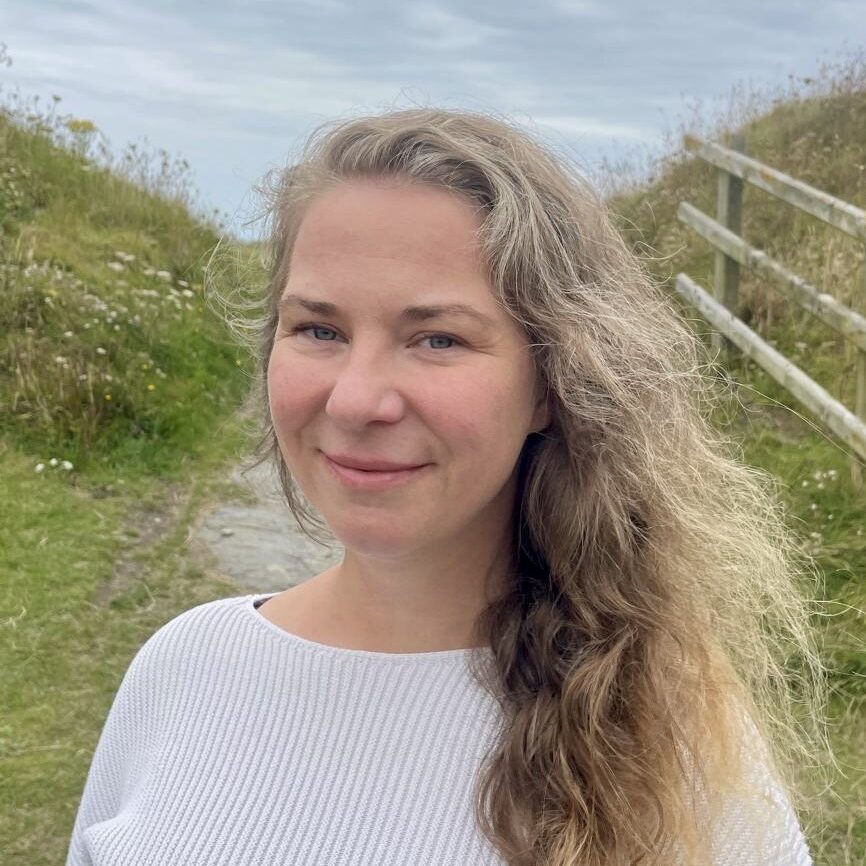Who am I?
I trained as a Clinical Psychologist and Psychotherapist following my personal and professional experiences. I’m receiving patient in France, in English language. Naturally sensitive, I attracted people in need towards me. My path led me to experience working with children and adolescents in different environments: educational, mental health, presenting social and legal difficulties. I have also worked with adults and elderly people, in a variety of settings: in retirement homes and palliative hospitals, on the street, in prison and in mental health hospitals.
Overall, I have 19 years of experience working between the UK and France with people of all ages with a wide variety of problems. I have carried out therapy, therapeutic support, consultation, supervision, psychological assessments, training and I continue to train in this profession that chose me. I am committed to having a relationship of trust with my patients and those I support. I would like to share my knowledge with you so that you can learn to utilise the tools I make available to you. This can allow you to move forward on your path and can help you to get out of painful patterns so that you can became more autonomous and feel more liberated.

Consultation
Occasional consultations may be sufficient if you are looking for a better understanding of yourself or someone around you. One or more consultations can be carried out in a way that is less constraining or structured than psychotherapy. Do you need to do a self evaluation, or an assessment of your relationship or someone close to you in order to gain more understanding? It may happen that once you have consulted a Psychologist you would like to start psychotherapy. This transition is entirely possible.
Psychotherapy
Psychotherapy is a type of treatment that can help people facing a wide range of mental health problems and emotional challenges. Psychotherapy can help not only relieve symptoms, but certain types of psychotherapies, like psychodynamic psychotherapy, can also help identify the root psychological causes of a person’s condition so that a person can function better and improve their emotional well-being and healing.
Conditions that may be relieved by psychotherapy include coping with stressful life events, the impact of trauma, illness or loss such as the death of a loved one; and specific mental health issues such as depression or anxiety. There are several types of psychotherapy, and certain types may work better in certain clinical situations.
Therapy can be carried out in an individual, family, couples or group setting and can help children, adults and older adults. However, due to the psychotherapy that I offer online, I can only lead individual sessions for adults.
Sessions generally take place once a week for approximately 45 minutes. Both the patient and the psychotherapist must be actively involved in psychotherapy. The trust and relationship between a person and their therapist are important to working together effectively and benefiting from psychotherapy.
Psychotherapy can be short-term (a few weeks to a few months), dealing with more immediate challenges, or long-term (months or years), dealing with complex, long-standing problems. The treatment goals, as well as the duration and frequency of treatment, are discussed together by the patient and the psychotherapist. A contract will be established between us to help remember what we agreed to and what you would like to achieve.
Therapeutic accompaniment
Therapeutic accompaniment uses encouragement to help the person develop his or her own resources. It helps build self-esteem, reduce anxiety, strengthen coping mechanisms and improve social and community functioning. Therapeutic accompaniment helps the person cope with the problems associated with the issues that are preventing them from living their best life. Therapeutic accompaniment is less intense than psychotherapy, and its aim is to help the person identify and understand their difficulties, then help them develop a more effective defence system. It’s a short-term intervention focused on a specific problem. Better management of emotions, for example, can be a goal of therapeutic accompaniment. This therapeutic intervention can evolve over time according to your needs.
My approach
I am a Clinical Psychologist and Psychoanalytic Psychotherapist. My theoretical base is solid and founded on the theory of the father of psychoanalysis, Sigmund Freud. I also draw on the theories of Winnicott, Adler, Jung, Klein, Bion, Anna Freud, Lacan and others.
During my training and practice, I have also discovered Gestalt therapy, existential psychotherapy, humanist psychotherapy, psycho-corporal psychotherapy, somatic psychotherapy, systemic psychotherapy, cognitive-behavioural therapy and other therapeutic modalities.
I adapt to each individual so that the space for psychotherapy, consultation or psychological support is open and protected. It is important to me that every encounter is open to dialogue and cooperation, allowing us to explore not only your past and present, but also your future potential. The meeting is the beginning of a change that you choose, and the therapist accompanies you on your path towards a new stage in your life.
Contact me


